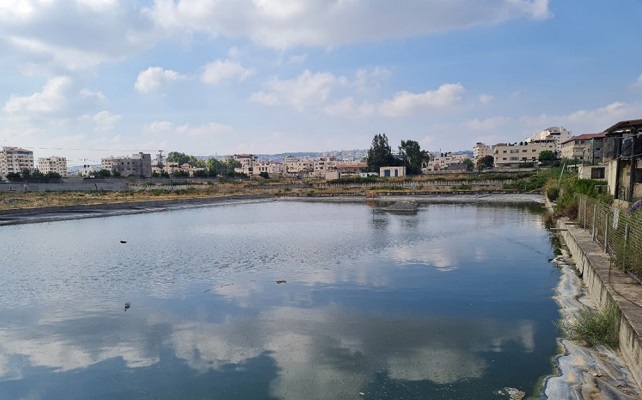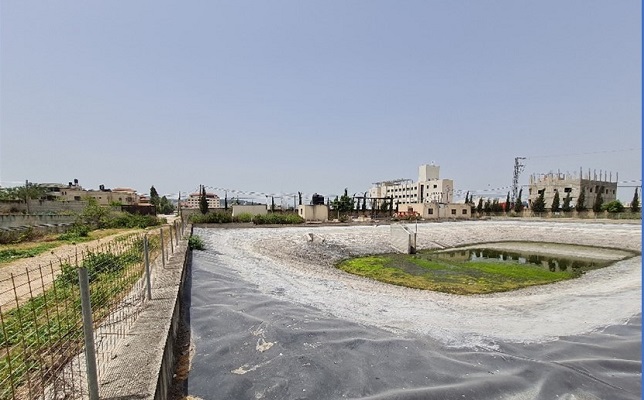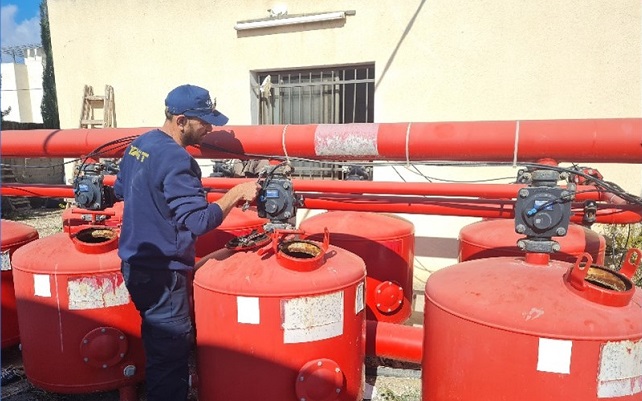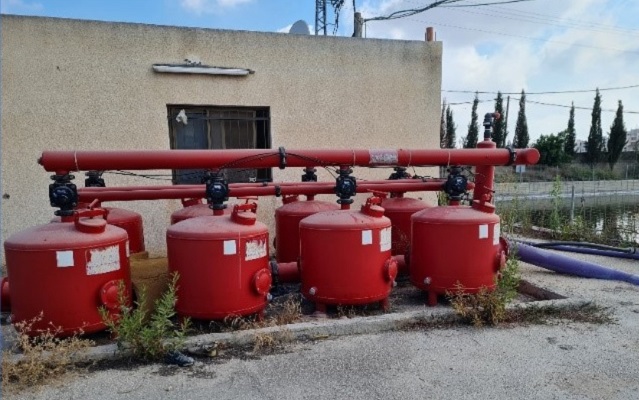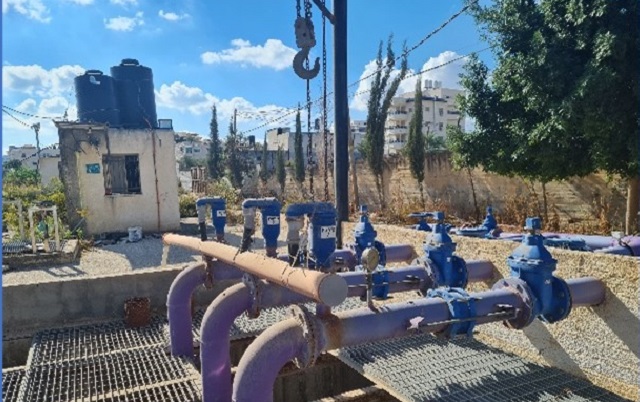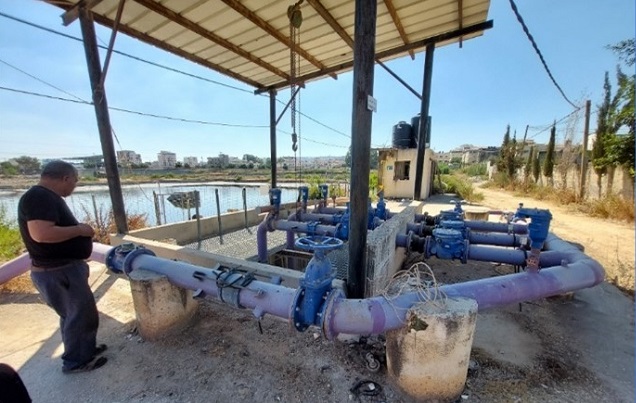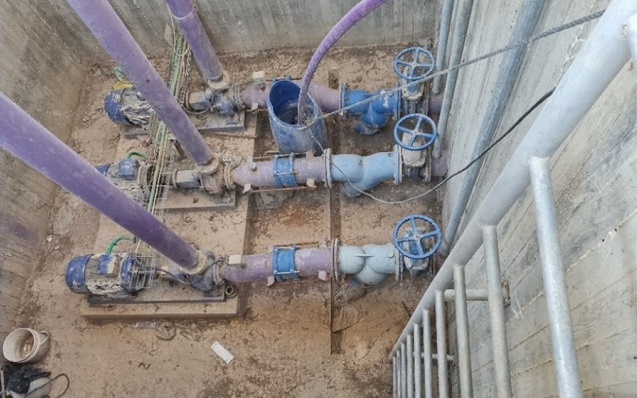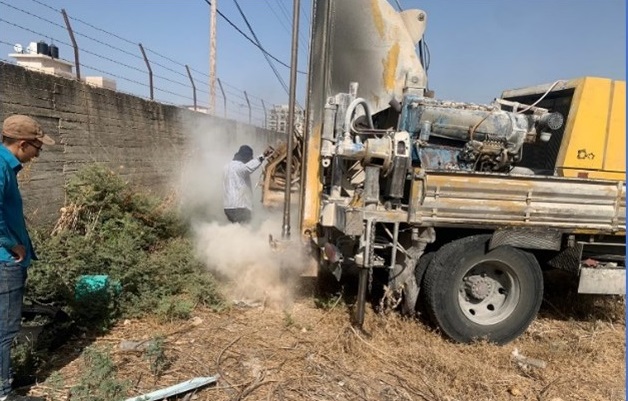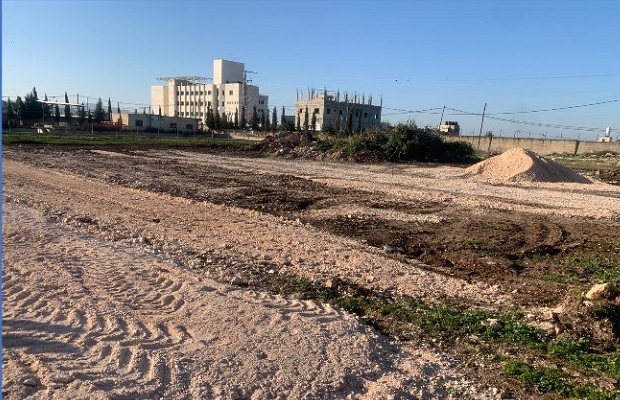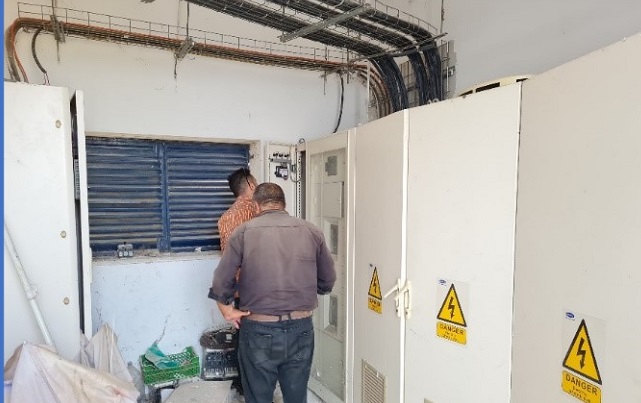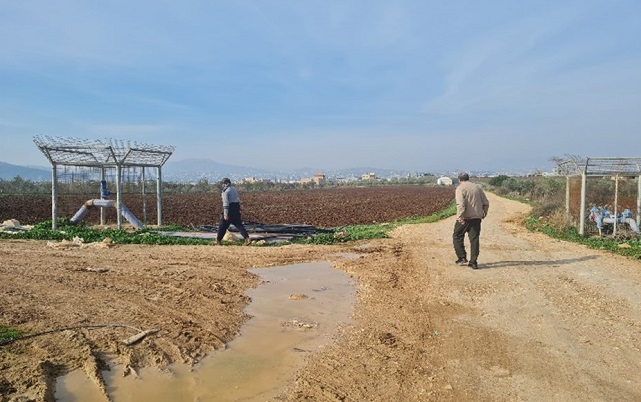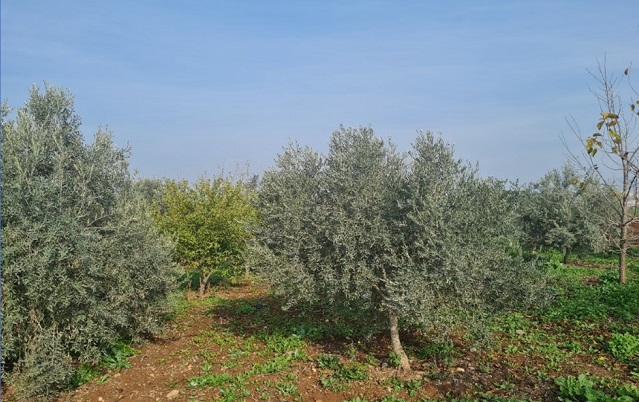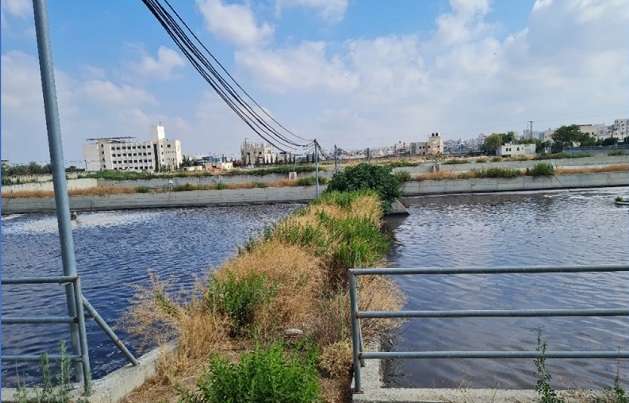Solar energy for wastewater management and irrigation in Jenin district
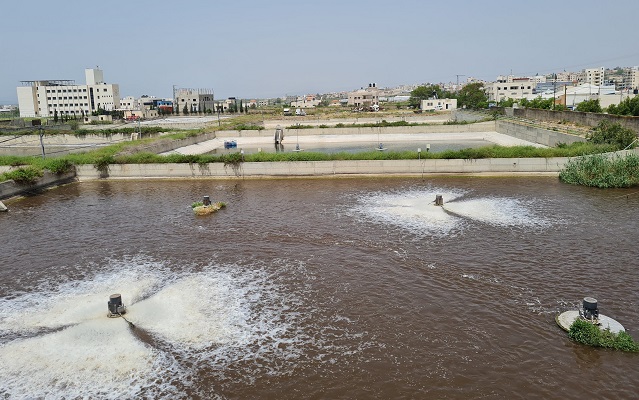
Water shortage and the related lack of irrigation has been a long problem for many smallholder farmers in the Palestinian Territories. To combat the problem, the American Near East Refugee Aid (ANERA) with Jenin Municipality implemented in 2015 a project to reuse treated wastewater for irrigation produced from Jenin wastewater treatment plant. However, the high cost of wastewater treatment has forced the municipality to pause the treatment. The consequent deterioration of water quality as well as the farmers’ lack of experience in maintaining the irrigation system led to the shrinking of the irrigated area. This IKI Small Grants project installs a solar energy facility to the waste-water treatment plant. With its solar panels, it provides smallholder farmers with clean energy and access to sustainable irrigation techniques. Accompanying trainings for the farmers to repair and maintain the system are an integral part of the project design.
INITIAL SITUATION
In the last decades, Jenin Governorate was affected by climate change, showing extreme shifts in the average temperature and rain patterns. While the average amount of rain decreased, the demand for irrigation has increased by about 10 per cent. At the same time, the energy demand of Jenin Municipality increased by 7 per cent. These negative impacts affect the production of the farmers’ crops which result in economic loss, reducing the region’s food security.
In 2015, ANERA in cooperation with Jenin Municipality implemented a wastewater reuse project for 60 hectares of land, which is managed by the Marj Ibn Amer Cooperative Water Users Association (WUA) and Jenin Municipality itself. Because of the high cost for electricity, the municipality was forced to pause the wastewater treatment which in turn led to less water available and a shrinking irrigated area for smallholder farmers.
TARGET GROUP
This project targets governmental and non-governmental bodies that advocate for water supply in the region. The governmental authorities include the Palestinian Energy and Natural Resources Authority (PENRA) which regulates and facilitates the installed energy power plant as well as the Palestinian Water Authority which facilitates the reuse scheme.
Furthermore, the project strengthens the non-governmental Northern Electricity Distribution Company which provides the connection to the grid, technical support, and the refund of the produced energy.
Jenin Municipality is beneficiary and, at the same time, responsible for operating and maintaining the solar plant. Marj Ibn Amer Cooperative Water Users Association (WUA) benefits from improved water pumping stations and irrigation systems and is, as a farmer association, the project’s main beneficiary.
40 targeted smallholder farmers in the Jenin region profit the most, by being able to expand their irrigated lands. Because the produced energy from the solar plant substitutes the electricity bill to the current treated wastewater pumping station and wastewater treatment plant, the WUA can reduce the pumping costs for the farmers. Compared to today, more treated wastewater can be used and thus, more land will be irrigated.
APPROACH AND ACTIVITIES
This IKI Small Grants project improves water security for farmers and supports agricultural production in a water scarce region. The project provides solar panels to the wastewater treatment plant benefitting the Jenin Municipality and the WUA.
It thus helps to decrease greenhouse gas emissions of the consumed conventional electricity by replacing part of it by solar energy. It decreases the financial burden on both Jenin Municipality, the WUA, and farmers. It enhances their technical and managerial capacities. In addition, it helps to expand fodder crop and recultivating the dried-up area, thus sustaining and expanding the cultivated area.
Moreover, the project trains farmers and WUA on operation and maintenance of treated wastewater irrigation system and the municipality staff on operating and the maintaining the newly built solar panels. It thus creates a sustainable mechanism to avoid further loss of irrigated areas.
LATEST PROJECT HIGHLIGHTS AND IMPACTS
- Project finalized
- PV system with a capacity of 65.4 kilowatts peak is installed and operational; yearly production of over 107,000 kilowatt hours
- Filtration system and irrigation pumps maintained and renovated for irrigation of 10 hectares
- Fruit tree seedlings (pears, guava, figs) for 1.5 hectares supplied to farmers based on their needs
- Training sessions on operation and maintenance of solar plants and on TWW irrigation system conducted
CAPACITY DEVELOPMENT
IKI Small Grants supports House of Water and Environment in their organisational capacity development, offering advanced trainings in fundraising, project management and good governance. Furthermore, the project is accompanied by the Palestinian GIZ Office for technical and legal-commercial support throughout its implementation phase.
ABOUT THE ORGANISATION
The House of Water and Environment (HWE) is a Palestinian non-profit NGO that was established in 2004. HWE aims to promote practical research into the current and future state of water resources and the environment in the Palestinian Territories and across the region. It aims to address that need through mobilising local and international networks and partnerships to promote a broader analysis of sustainable water resource development and better governance of resources.

